France on the rise
French cycling shrugs off its inferiority complex
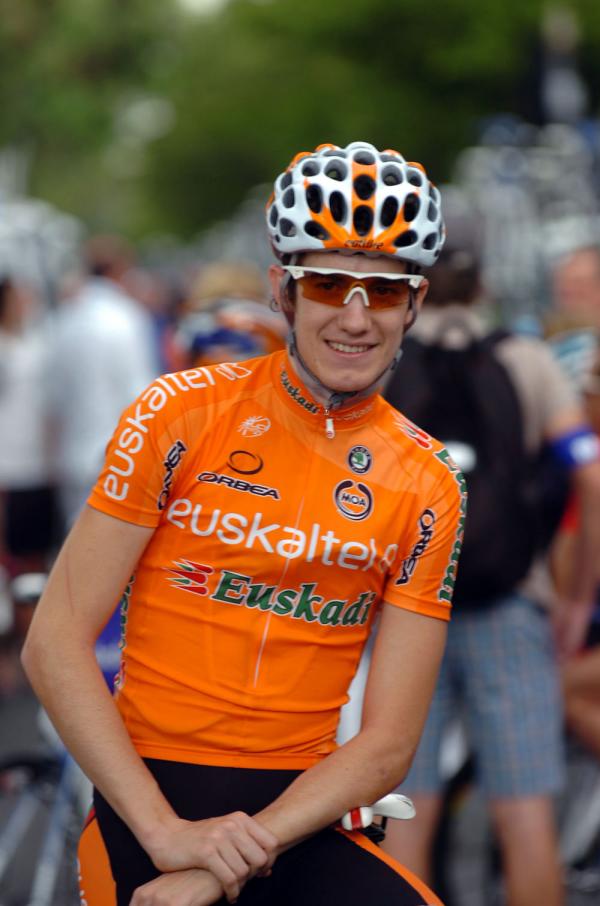
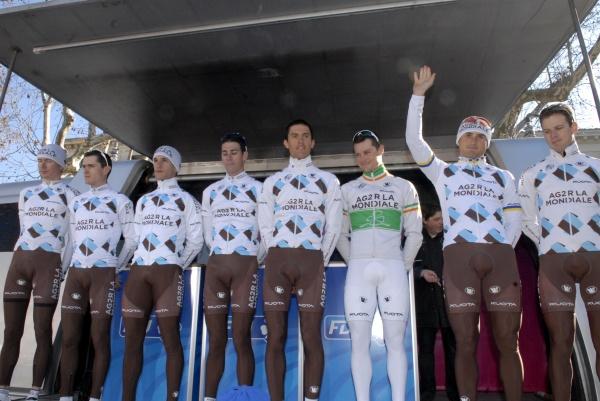
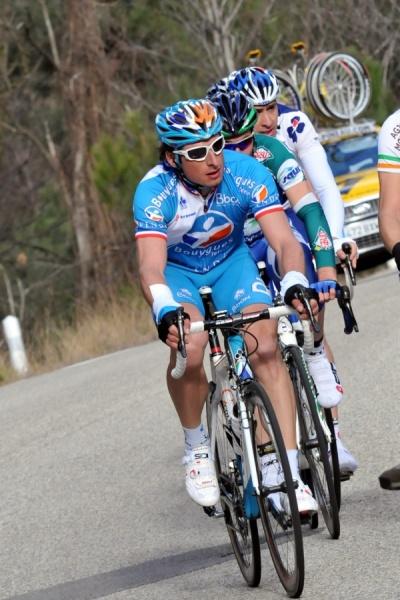
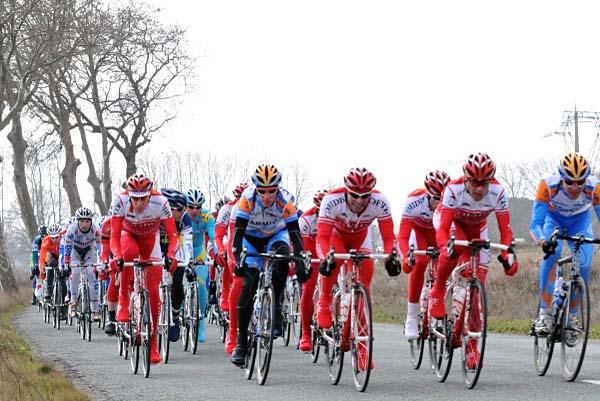
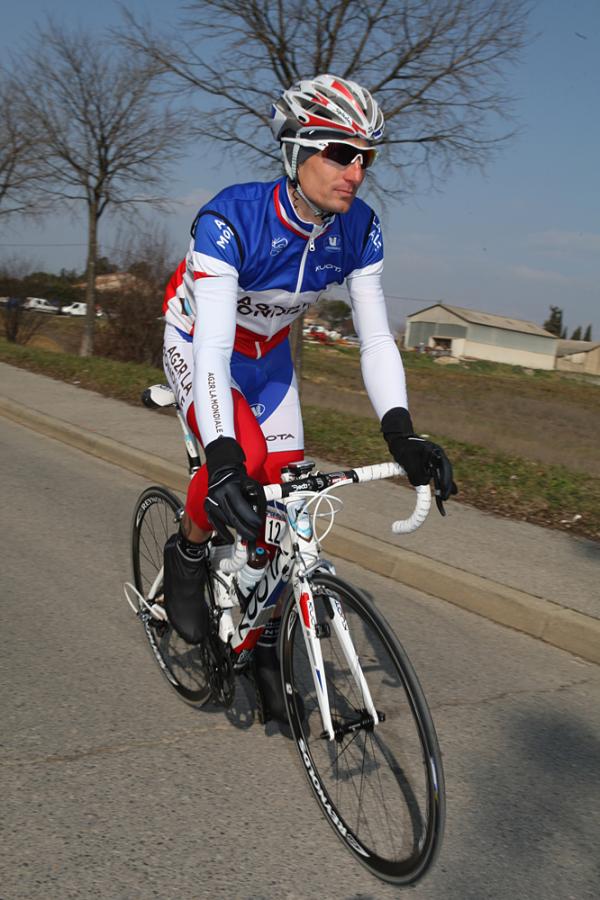
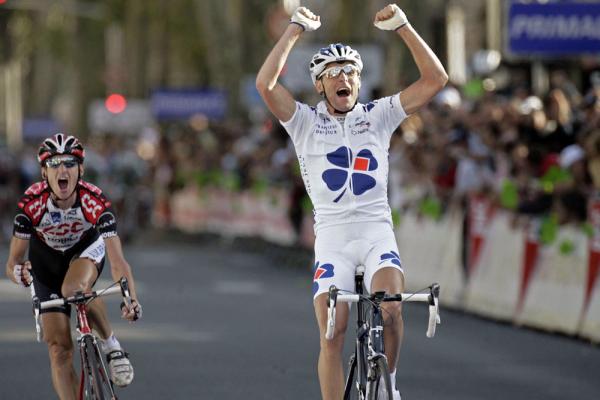
Since the late 1990s French cycling has suffered a long drought with regards to major race victories. For a country that has produced the most overall victors in the Tour de France since its inception in 1903, the decline has been devastating.
But now, it seems, the tables are starting to turn. In 2009 French riders won three stages in their own Grand Tour and two in the Dauphiné Libéré - to name but some of their victories - and a French espoir became the U23 world champion. The beginning of this season also showed great promise, as French riders won at the Tour Méditerranéen, Volta ao Algarve, GP Insubria, Tour du Haut-Var and Etoile de Bessèges.
In fact, in the beginning of March, France topped the 2010 statistics with 27 victories in front of Belgium (26) and Italy (25). La Française des Jeux had achieved as many victories as the new British mega-team Sky. Cofidis is one the same level as Alejandro Valverde’s Caisse d'Epargne.
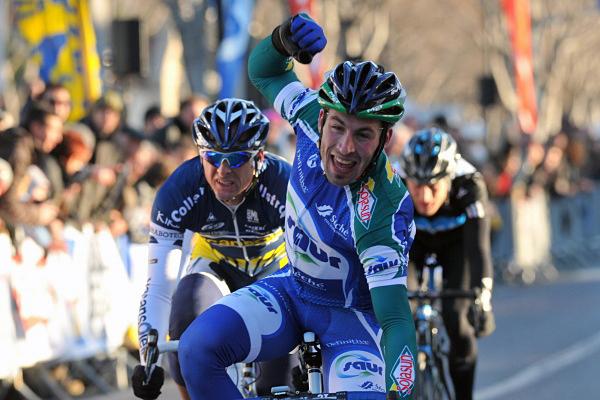
The numbers don't lie and in 2009 France actually topped the UCI victories rankings by nation with 154 wins, followed by Italy with 144 and Spain with 112 victories.
So, what are the reasons for this new-found success? In the past, cycling observers have always mourned the riders' alleged incapacity to train hard enough, to which the riders responded by pointing the finger at the other nations alleged doping habits and a peloton riding at ‘two speeds’. Such chatter came after France had installed the 'suivi médical longitudinal' in the aftermath of the Festina affair in the end of the 90s - an instrument to control the riders' physiological values that went beyond the UCI's standards at the time.
But was this really a good enough excuse for the lack of results from French riders? Other nations said that the French were too protected, too complacent, and ultimately, too frightened to break the mould that had been made comfortable for them.
According to Cofidis manager Eric Boyer, this is about to change. The new approaches in terms of team structure and training tools have finally bore fruit, said the Frenchman, who wasn't afraid to admit that French cycling had deficiencies in the past.
Get The Leadout Newsletter
The latest race content, interviews, features, reviews and expert buying guides, direct to your inbox!
"I think [the new-found success] is mainly due to work," he told Cyclingnews. "We [the French] were a bit behind in terms of the quality of our work. I think the way our teams were structured before prevented us from being truly competent to transmit effective training methods.
"There are physical exercises that have to be done to improve cardio-vascular fitness, which is extremely important in cycling. Before, the riders just went out training for six or seven hours..."
Better tools, greater output
In the past, team managers or sports directors were the ones who made the training plans for their riders. A few years ago, the teams started hiring experts for the job, introduced the latest power meter equipment, and these training methodology changes are now paying off, according to Boyer.
"We, the French teams, only started working with tools like the SRM four or five years ago, when other nations, notably the Anglo-Saxons, understood their worth long before us. But it's not enough just to possess these tools; you also have to put into place a structure to use them. To work with the SRM implies the knowledge to read its data output, analyse it and interpret it."
In 2006, when Boyer took over the reigns of Cofidis, one of the first major changes he made was the hiring of a professional trainer. Yvon Madiot, sports director of Française des Jeux, also acknowledged the importance of providing the riders with the right tools and team structure.
"We are now working with the latest materials, the best power meters, professional trainers and people who really understand training methods. All of this contributed to our recent success."
However, some time was needed before the changes took effect. "All of this can only work if the rider understands a minimum of his training's electronic data. We needed time to explain the very complex data to the riders, to make them understand how this could improve their physical condition and ultimately their performance in races," added Boyer.
It took a couple of years to get to the other nations’ level, who had a head start in the work with professional trainers.
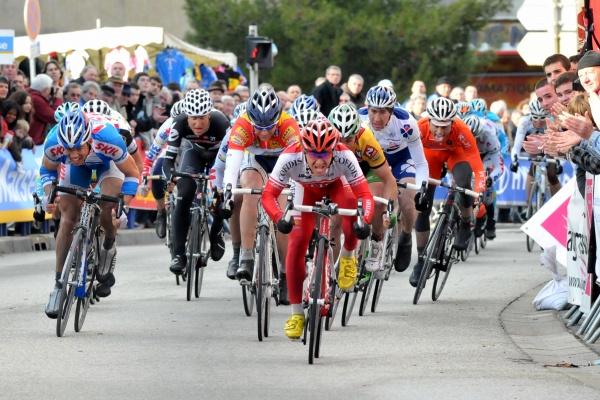
A clean and levelled competition
But Boyer also described a second, very important factor that contributed to the recent French successes. "I think the fight against doping is another reason," he said. "The system is starting to work, and it just shows. They caught people like Riccò, Di Luca and all the others - but they didn't catch any French riders. For me, it's not a coincidence. If French riders doped as the riders I just mentioned, they would also have been caught.
"We made our progress in terms of training structures, and this was essential. But I also think that the population of riders that had a doping approach is getting smaller - and this has brought down the level a bit."
Moreover, Madiot added a third reason for France less glorious past during the last two decades. "Maybe it was also generational. I do believe there are cycles of talent. You have to admit that there have been various generations of very good Anglo-Saxon riders, and good Italian and Spanish generations. Maybe the French riders were not as good as in other countries with respect to talent," he said.
Restoring the faith
In any case, France's recent past has left a mark on the nation's riders. "The problem is that this left a real dent in the minds of the riders. They told themselves 'we don't have the same practices as a lot of the other riders, so even if we work in the best possible way, it's still not possible to win'. They gave up in a way, and concentrated on the goals that seemed realistic to them."
As a result, the psychological rehabilitation work within the teams has been "enormous", said Boyer. "This mental surrender of some ten years ago has cut deep into the minds even of the generations after that. We, the team managers and sports directors, are building the riders up again now to make them believe that it's actually possible to win a big Classic, or even the Tour de France."
Of course, it's the young riders that are more likely to have their faith restored. Julien El Farès, for example, did not fear the likes of Ivan Basso or Danilo Di Luca when he tried to defend his leader's jersey in the beginning of Tirreno-Adriatico last year, according to the Cofidis manager. "That's somebody who's ready on a psychological level. With this generation, we can look at great victories again."
Boyer, a former team-mate of Laurent Fignon and Greg Lemond, added that almost all of today's French team directors had been former cyclists in a time where French teams at the Tour de France were still contending for the overall victory, and were now trying hard to transmit this winning frame of mind to their young riders. "There have been two or three generations that have never known what it felt like to go for a Tour victory. They can't even imagine it. So it's very difficult for them to realize that this is actually possible."
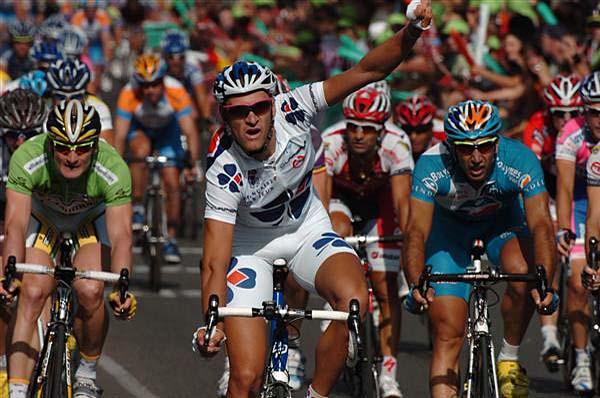
For Madiot, the psychological factor was even the main reason for France's lack of success since the late 1990s. "I'm convinced that it was because the French lost the habit of winning that they also lost the belief they could do it. We felt inferior, and almost accepted our defeat even before starting a race. We needed a bit of time to build up confidence again, to understand that it was possible to win and to implement the structural changes within the teams."
A victory in a top-level Classic is what the nation now needs to completely put its recent past to bed. "We haven't reached that level yet," said Boyer. "We still have a lot of work to do, but we're making progress."
Madiot agreed, citing young talents such as his own Yoann Offredo or Bbox's Alexandre Pichot for a possible Classics victory, or mountains specialists like Euskaltel's Romain Sicard or Rémy Di Grégorio. "Now, you see that there's a new wave of French talent, which moreover has the right tools at its disposal to take maximum advantage. Everybody has progressed. The riders themselves, the teams with their professional trainers and the latest power measurement tools, the material... It took some time to catch up with other countries, but we're getting there."
Moreover, French teams had the tendency to safeguard their young talents, thinking this would maintain their physical capacities - but it turned out that this approach hindered the riders' progress. "We used to think that we had to protect our young riders a little to make them come to maturity slowly," added Madiot. "Maybe this was a mistake. Now, we ask a bit more of our riders even in their early careers, to wake their sense of competition and strengthen their character. We over-protected our riders in the past, which made us lose four of five years. I think these young talents will improve much faster now that we have much better working conditions."
And who knows? With the right tools, the right frame of mind and a few years, even a new Tour de France contender could emerge out of France's large pool of talented cyclists. Both Boyer and Madiot feel optimistic about the future of French cycling, and are working relentlessly to make this dream come true once again.
Pressure on Cofidis and Bbox
Cofidis and Bbox Bouygues Telecom will be eager to score important victories as the stakes for both outfits are high. Having finished bottom of the 2009 ProTour teams ranking, the squads were relegated to Professional Continental level to make way for newly-arrived outfits Sky and RadioShack. Because the Tour de France does not count for ProTour points, Bbox's two stage victories did not weigh into the classification. Moreover, both of their sponsorship contracts are due to expire at the end of this season.
For Bbox, a return to the ProTour is not the ultimate goal, whilst it could be the salvation for Cofidis. Boyer needs as many victories as possible to convince the sponsor to extend its support beyond 2010 and re-apply for a ProTour licence.
"We don't know if they will continue with us or not," Boyer told Cyclingnews. "Cofidis will make their decision public at the end of March or beginning of April. In hte meantime, I have of course been working on alternative partners."
For French teams and their sponsors, the number one objective will always be the Tour de France, and both squads are guaranteed an entry this year. But with the advertising budgets of France's biggest companies being allocated in June at the latest - for the following year - chances are both Bbox and Cofidis will be especially motivated to shine during the first half of the season.